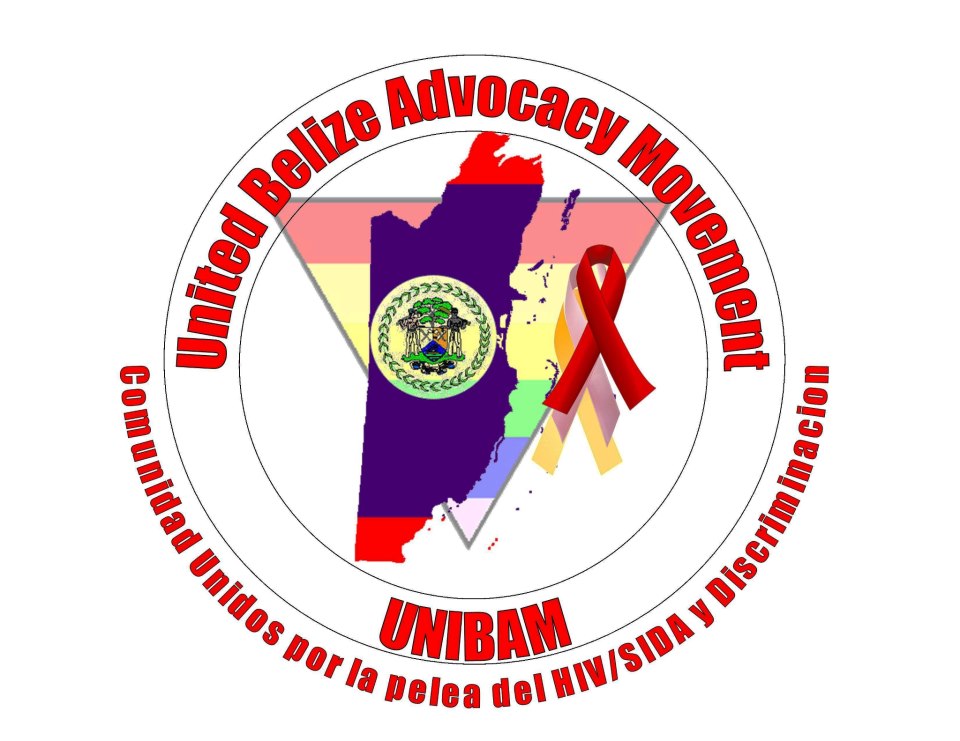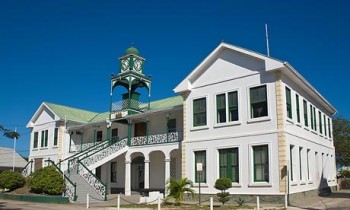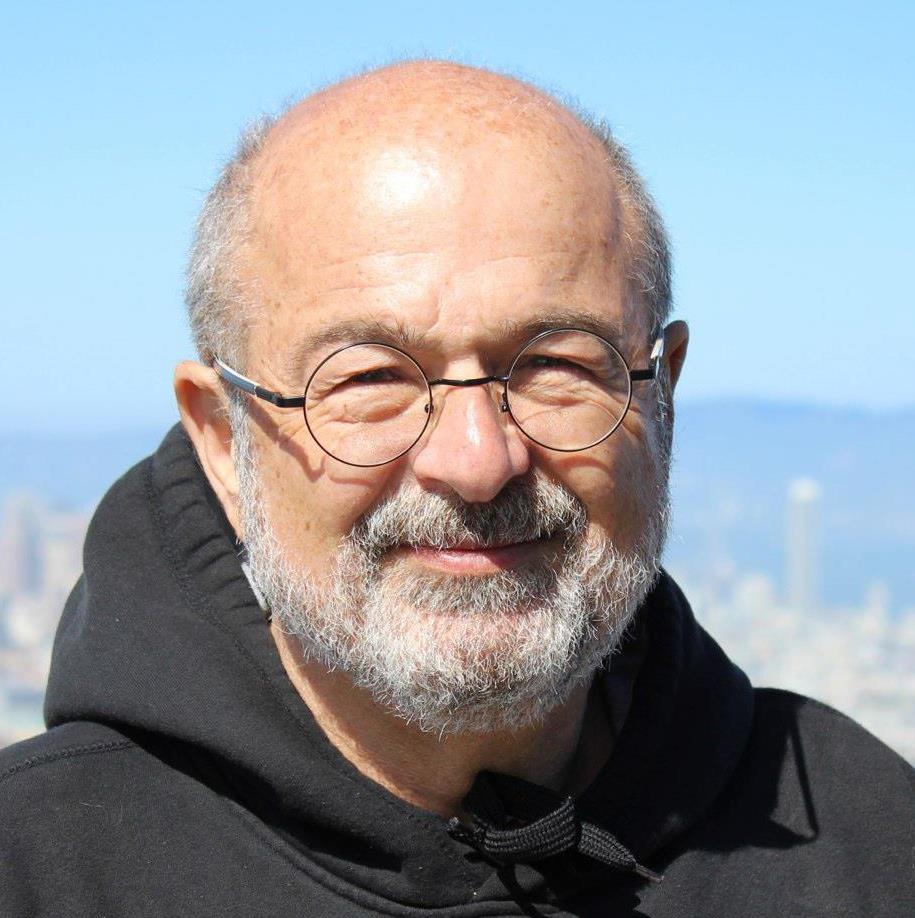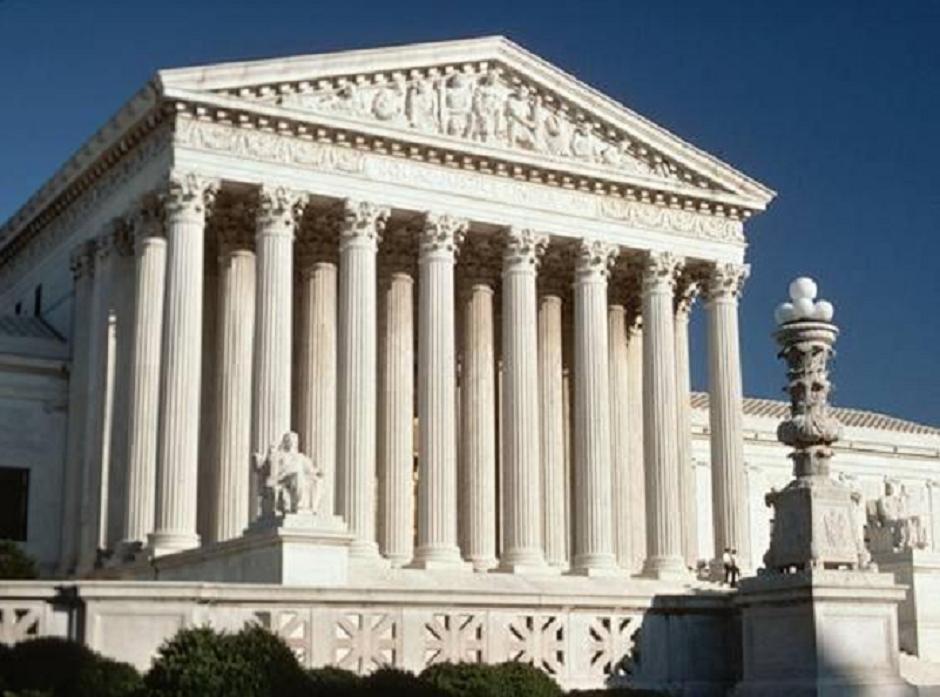Belize sodomy law on trial, Day 2
Colin Stewart is a 45-year journalism veteran living in Southern…

It’s Day 2 of the constitutional challenge against the Belize sodomy law, Section 53, brought by Caleb Orozco, leader of the United Belize Advocacy Movement (Unibam).
Asa DeMatteo, a clinical psychologist living with his same-sex spouse in San Francisco, is blogging from the courtroom in Belize. His first dispatches appeared yesterday on Tumblr and Twitter and as two articles on this blog — “Dramatic scene: Challenge to Belize sodomy law under way” and “Belize challenge to anti-gay law, 140 characters at a time.”
These are his latest updates:
Quietly and respectfully

I entered to an empty court room, now cool and quiet on a beautiful Belize morning. A beautiful woman comes in alone, sits down in the audience section, clasps her rosary between her two hands and prays silently. A few minutes later, a priest (I presume; he is wearing a dog collar) then enters and moves toward the woman. They embrace. It is clear that this case touches deeply held beliefs on both sides. But this scene also tells us that there are also deeply held emotions.
Now two porters come in with boxes holding the massive library of materials needed by both sets of advocates. The advocate tables are covered with thick volumes. Now the advocates are filing in, smiling at one another, shaking hands on both sides. Such is the majesty of the court: Two sets of people completely at sixes and sevens with each other, but showing each other respect, civility, cordiality. Would that all of us could manifest such decency in our daily lives.
The Chief Justice [Kenneth Benjamin] enters. We all rise and bow to him as his takes his seat on the hand carved rosewood chair with an intricately carved finial in the shape of a crowned globe on the back. The advocate for the plaintiff now starts.
Those who wish to read a masterfully written summary of yesterday’s proceedings may point their browser to https://76crimes.com/category/americas/. I will be tweeting throughout the day at @AsaDeMatteo #belize #unibam
Plaintiff’s counsel continues the case against Section 53
Day 2 of the UNIBAM challenge to the anti-sodomy law of Belize begins. Yesterday’s lead counsel [Christopher Smith‐Hamel of Trinidad] starts.
A law forbidding private sexual behavior, even when not prosecuted, nonetheless has great significance to that person.
A gay person who is an unapprehended felon takes a risk in multiple areas. He may fear reporting a crime against him.
He may a fear the investigation of the crime against him for fear of discovery of his sexual crime.
He may be reluctant to share crucial information about his sexual life fearing exposure to charges of sexual crime.

The plaintiff in the present case [Caleb Orozco] has submitted data documenting the social limitations on gay people in Belize.
Those charged with enforcing the laws are subject to human frailty just as all of us are.
Ongoing stigma hinders fight against HIV
Courts throughout the commonwealth have recognized the stigma anti-sodomy laws have on the dignity of homosexuals.
The experience of HIV treatment organizations indicates that homosexuals worry about the stigma of being illegal.
The interested parties (the churches [involved in arguing against Orozco’s suit]) have claimed S53 the only protection for rape of male children, so gay should wait [until that issue is settled before seeking to overturn Section 53?]
But while homosexuals wait, people are dying while fearing to report their HIV disease the health official.
The legislature has delayed passing alternative, non-stigmatizing laws, to protect all people against rape. How long?
How many people must die? When is the right time to correct this law?
From the clergy elsewhere: there is a diversity of views of homosexuality, there is unity against criminalizing sodomy. [Editor’s note: I wish that were true!]
The head of Belize Action, the main group condemning alteration of S53, has just entered to observe the proceedings.
There seems to be less tension in the air today. Perhaps everyone is fatigued.

The advocate refers to diversity continually — diversity of views within the church, diversity of the citizens.
Advocate, who yesterday requested an additional ½ hour today and has taken has taken 1 hr asks for 5 minutes more.
Advocate uses his 5 minutes to read from Rev. Desmond Tutu’s plea to the United Nations for equality for gay people everywhere.
Advocate: “We are starting on a journey … and a journey begins with one step … will this journey take us forward or back?”
Human rights groups take a turn
Human Dignity Trust advocate [Lord Peter Goldsmith representing international human rights organizations Human Dignity Trust, Commonwealth Lawyers Association, and the International Society of Jurists]: S53 directly attacks the constitution itself at its preamble.

My tweets have not been showing up on Facebook. I am attempting to correct.
I have missed most of the Human Dignity Trust advocate while dealing with communication problems. Sorry.
There are important violations by S53 to internationally agreed upon human rights.
If I run out of battery, my colleague who is writing notes will post during lunch on what I’ve missed.
The constitution is a living document. It must protect contemporary understandings of rights.
It is very difficult for anyone except the Chief Justice to hear the Human Dignity Trust advocate.
Constitutionality of S53 cannot be taken to referendum. Constitution specifically purposed in protecting minority rights.
It is the purpose of the constitution to protect the rights of minorities without the political power to protect themselves.
There is symbiotic relationship among the UN human rights, European, and the Caribbean commonwealth constitution.
If there is conflict between any of the constitutions, it should be settled in favor of the Caribbean commonwealth constitution.
Advocate for Human Dignity Trust rejects charge of being foreign influence. Belize has agreed to cooperative standards.
There are cooperative standards for the region to which Belize is bound.
Some in Belize say “We can’t be bound by interpretations of international agreements made after we signed on.”
HDT advocate rejects that claim based on multiple case findings from the region and elsewhere.
The interpretation of “sex” as encompassing “sexual orientation” was made before Belize signed on.
U.S. Supreme Court on sodomy laws

US case Bowers v Hardwick (1986) found “no constitutional right to homosexual sodomy.”
Bowers upheld Georgia’s anti-sodomy laws. It was overturned in Lawrence v Texas (2003) overturning Texas’ anti-sodomy law.
Lawrence did not confer a right to homosexual sodomy. It restricted the right of government to restrict private sex behavior.
US and Belize constitutions differ. Belize has more explicit and robust protection of individual privacy.
“There are spheres of privacy where the state has no authority to inquire or intrude.” Private morality is one such area.
In Lawrence [case]: Is there a [missing word — fundamental right?] in the constitution to homosexual sodomy. No.
Lawrence cont.: There is a fundamental right not to be restricted in one’s private sexual behavior.
Anti-sodomy laws are grounded in long-held prejudices and deeply sincere religious convictions.
Lawrence refers to Loving v Virginia which found history and tradition cannot save anti-miscegenation laws.
Privacy rights are particularly robust in Belize constitution. Burden of justifying falls on those restricting it.
The justification for violating privacy must be proportional to the degree of violation. S53 must have powerful reasons.
Defendants [government of Belize, etc.] have submitted no case to support intrusion of privacy of the sort seen in S53.
Equality is the antithesis of discrimination. Differential treatment must be heavily justified.
Mere legislative action to intrude on privacy is not sufficient justification.
Sodomy law vs. public health
The only justification put forth by defendant is public morality and maybe public health. They have a heavy burden.
They must demonstrate powerful justifications for intruding on privacy and means proportional to the violation.
HDT advocate cites country after country where decriminalization has been based on privacy rights to same sexual behavior.
HDT advocate discussing decriminalization in Cuban case. Forbidding homosexual behavior is ineffective in lowering HIV.
Criminalization drives homosexual behavior underground and out of reach of health authorities.
The effect of S53 is shown to impede health care, particularly AIDS and HIV treatment.
When you find a statute that discriminates on basis of sex, that also encompasses sexual orientation.
Defendants’ claims of Belize endorsing agreements before sexual discrimination interpretation are false. Endorsed 2 yrs before.
Basic concept is you are master in your own home and can chose your behavior as you will, unless strong reason to restrict.
HDT advocate is making a point re plaintiff never having been arrested under S53, but I can’t hear.
It seems the jist of the point is that although Orozco has not been arrested under S53 he has been greatly affected by it.
Sodomy law defenders’ viewpoints
Opponents claim plaintiff seeks an expanded view of privacy not envisioned by the constitution.
Opponents claim Orozco wrongly rejects the view of the majority.
Back to the plaintiff’s side
Does the case at hand engage one of the fundamental rights? Yes. Privacy.
S53 engages the right to dignity as well as privacy.
Human dignity is a core right in many constitutions. Can be argued that all other rights derive from this fundamental right.
Criminalization of sodomy denies and denigrates a core component of human sexuality, the right to love a person chosen.
S53 also engages the right to health in Belize’s constitution.
Belize court coverage so far:
DAY 1
Dramatic scene: Challenge to Belize sodomy law under way
Belize challenge to anti-gay law, 140 characters at a time
DAY 2
Belize sodomy law on trial, Day 2 (this article)


